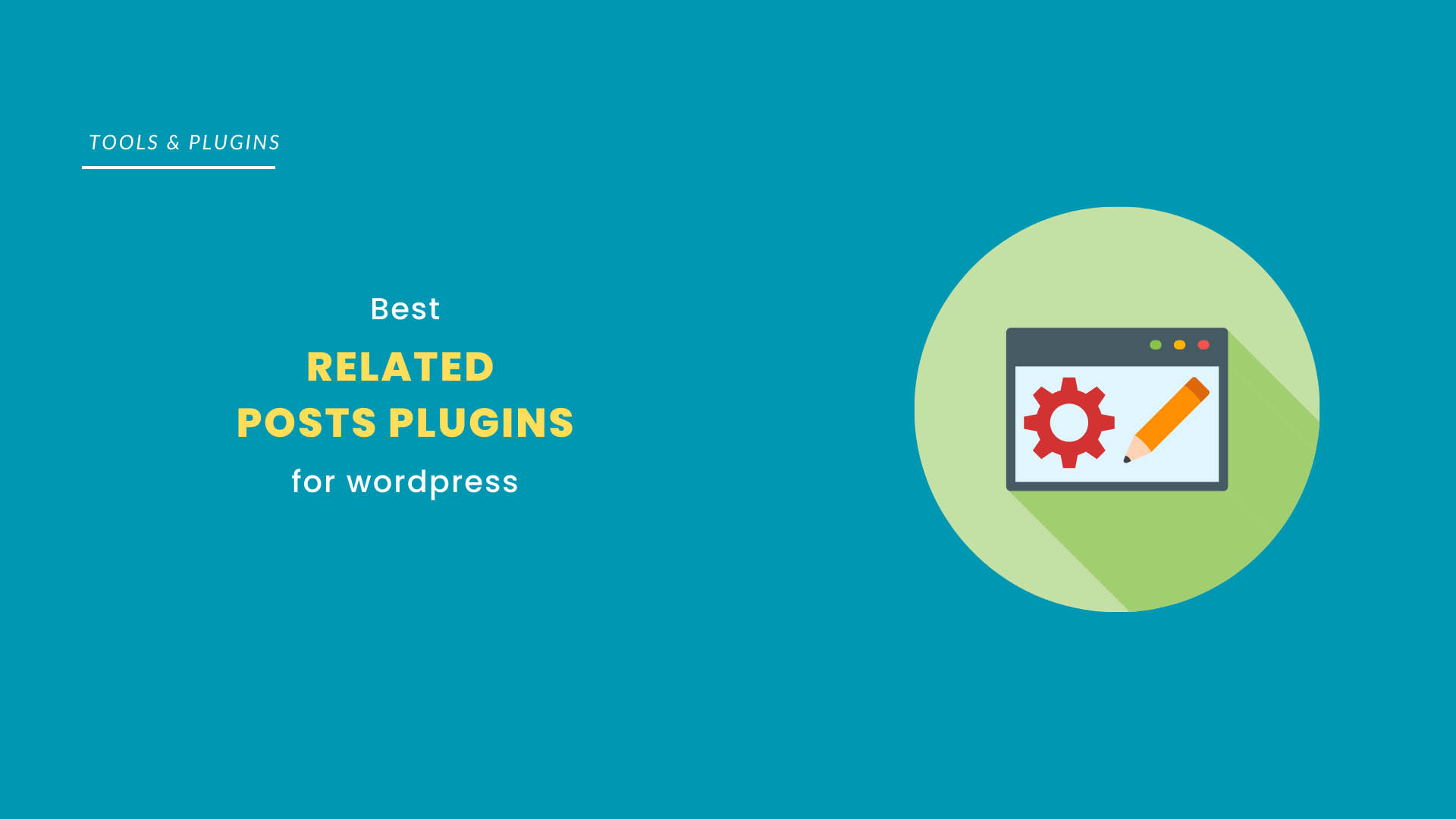Overview of Related Posts Plugins
In the ever-evolving digital landscape, keeping your audience engaged is crucial for the success of any website. For WordPress users, one of the most effective tools to achieve this is a related posts plugin. These plugins automatically suggest additional content to readers, based on the article they’re currently viewing. This not only enhances user engagement but also significantly increases page views and improves your site’s SEO.
Related posts plugins work by analyzing the content, categories, tags, or even custom taxonomies of your posts and then displaying a list of similar or related articles. By keeping readers on your site longer, these plugins help reduce bounce rates and encourage deeper exploration of your content, ultimately fostering a loyal audience.
Purpose of the Article
The purpose of this article is to guide you through the best related posts plugins available for WordPress. Whether you’re a beginner looking for a simple setup or an experienced user seeking advanced customization options, this list covers plugins tailored to various needs. By the end of this article, you’ll have a clear understanding of which plugin is best suited for your website and how it can help you achieve your goals.
Key Considerations When Choosing a Related Posts Plugin
Compatibility
Before diving into the specifics of each plugin, it’s essential to consider compatibility. Not all plugins work seamlessly with every WordPress theme or version. Ensure the plugin you choose is compatible with your current WordPress version and theme. This will prevent any conflicts or errors that could disrupt your site’s functionality.
Performance Impact
Related posts plugins can sometimes be resource-intensive, which may affect your website’s loading time. A slow site can frustrate users and lead to higher bounce rates. It’s important to choose a plugin that is optimized for performance, with built-in caching or lightweight code, to ensure your site remains fast and responsive.
Customization Options
Customization is another critical factor. A good related posts plugin should offer a range of customization options, allowing you to tailor the display, placement, and style of related posts to match your site’s design and user experience. Whether you want to showcase thumbnails, excerpts, or full posts, the ability to customize is key to creating a cohesive look and feel.
Ease of Use
If you’re new to WordPress or prefer simplicity, ease of use is paramount. A plugin with an intuitive interface and straightforward settings can save you time and effort. Look for plugins that are beginner-friendly, with clear documentation and support to help you get started quickly.
Support and Updates
Finally, consider the support and update history of the plugin. Regular updates ensure the plugin remains compatible with new WordPress versions and security standards. Additionally, reliable customer support can be invaluable if you encounter any issues or need assistance with configuration.
III. List of The Best Related Posts Plugins for WordPress
Yet Another Related Posts Plugin (YARPP)
Features: YARPP is one of the most popular related posts plugins for WordPress, known for its powerful and customizable algorithm. It supports various post types, including pages and custom post types, and comes with built-in caching to enhance performance.
Pros: Highly customizable with a range of display options. It’s efficient and has a large user base, which means extensive documentation and community support.
Cons: YARPP can be resource-heavy, especially on sites with a large amount of content, which may slow down your website.
Ideal For: Bloggers and content creators looking for a highly customizable solution that can handle diverse content types.
Contextual Related Posts
Features: This plugin analyzes the content of your posts to suggest related articles, making it one of the more accurate related posts plugins. It allows for customizable thumbnail sizes and offers both automatic insertion and manual placement via shortcodes.
Pros: Simple to set up and use, with versatile display options that can be tailored to fit your theme and content style.
Cons: It lacks some of the advanced features found in other plugins, making it less suitable for users who need more control or complex configurations.
Ideal For: Users who need a balance between automatic recommendations and manual control over how and where related posts appear.
Jetpack by WordPress.com
Features: Jetpack is a comprehensive plugin suite developed by WordPress.com, and it includes a related posts feature among its many offerings. Beyond related posts, it provides site stats, social media integration, security features, and more.
Pros: Jetpack is an all-in-one solution that’s easy to set up, especially for users already familiar with WordPress.com’s ecosystem. The related posts feature is automatically activated and requires minimal configuration.
Cons: For users who only need related posts functionality, Jetpack may be overkill. Its broad feature set can add unnecessary bloat to your site.
Ideal For: Those looking for a multi-purpose plugin that includes related posts as part of a broader suite of tools.
Inline Related Posts
Features: Unlike traditional related posts plugins, Inline Related Posts inserts related articles directly within the content of your posts. This keeps readers engaged by offering relevant content as they read.
Pros: This plugin helps increase page views by showing related content right where readers are most likely to be interested—in the middle of reading an article.
Cons: It’s limited to in-content placement, which might not suit all website designs or content strategies.
Ideal For: Content-heavy websites that want to keep readers engaged throughout their articles.
Related Posts Thumbnails Plugin for WordPress
Features: As the name suggests, this plugin focuses on displaying related posts with thumbnails, offering a visually appealing way to showcase content. It allows for customization of thumbnail size and display style.
Pros: Easy to use and visually attractive, this plugin is ideal for blogs that rely heavily on images and want to enhance user experience with a more visual approach.
Cons: It’s a basic plugin with limited advanced options, which may not be enough for users looking for more functionality.
Ideal For: Visual bloggers or photographers who want to highlight related content with eye-catching images.
Related Posts for WordPress by Bibblio
Features: This plugin uses AI to provide content recommendations, offering a more personalized experience for readers. It also includes detailed analytics to track how related posts are performing.
Pros: Advanced AI-driven recommendations help keep content highly relevant to the reader, while analytics provide insights into engagement.
Cons: Requires API integration, and some features are only available in paid plans, which might not be ideal for smaller blogs or those on a budget.
Ideal For: Larger sites or those with diverse content looking for a sophisticated and personalized related posts solution.
Similar Posts
Features: This plugin displays similar posts based on titles, content, or tags, making it a lightweight and efficient option for basic related posts functionality.
Pros: Simple, effective, and doesn’t add much overhead to your site, making it a good choice for users who want basic functionality without the frills.
Cons: Its simplicity means it lacks the advanced customization options found in other plugins.
Ideal For: Users seeking a no-frills, straightforward related posts solution.
WordPress Related Posts Plugin by AddThis
Features: This plugin not only offers related posts functionality but also integrates with social sharing tools from AddThis, along with analytics to track performance.
Pros: Combines related posts with social sharing, making it easier to promote content and engage users across platforms.
Cons: Customization options are limited compared to other dedicated related posts plugins.
Ideal For: Websites with a strong focus on social media integration and content sharing.
Related Posts Pro
Features: A premium plugin offering advanced filtering options, multiple layout designs, and AJAX-powered loading for smoother user experience.
Pros: Highly customizable with professional-grade features, making it suitable for websites that require more sophisticated related posts functionality.
Cons: It’s a paid plugin, and the setup can be more complex compared to simpler, free alternatives.
Ideal For: Professional websites that need advanced options and are willing to invest in a premium solution.
Related Posts by Taxonomy
Features: This plugin allows you to display related posts based on categories, tags, or custom taxonomies, offering a flexible and powerful way to recommend content.
Pros: It’s highly customizable and works well for websites with extensive taxonomy structures.
Cons: Requires a good understanding of taxonomies, which might not be suitable for beginners.
Ideal For: Websites with complex taxonomy structures that need precise control over related posts display.
How to Install and Configure a Related Posts Plugin
Step-by-Step Installation Guide
Log in to your WordPress dashboard.
Navigate to Plugins > Add New.
In the search bar, type the name of the related posts plugin you want to install.
Click “Install Now” on your chosen plugin.
Once installed, click “Activate.”
The plugin is now active on your site, and you can access its settings under the “Settings” or “Appearance” tab, depending on the plugin.
Basic Configuration
Once installed, navigate to the plugin’s settings page. Most related posts plugins will offer default settings that work well out of the box. However, you can customize these settings to better match your site’s design and content strategy. Common options include choosing the number of related posts to display, selecting post types, and configuring the appearance of the related posts section.
Customization Tips
To ensure that the related posts section blends seamlessly with your site’s design:
Match the color scheme and typography of your related posts section to your overall site design.
Choose to display thumbnails or post excerpts, depending on what fits your site’s aesthetic.
Experiment with placement—whether at the end of posts, within the content, or in a sidebar—to find the most effective location for your audience.
Conclusion
Recap of Top Plugins
We’ve explored a range of related posts plugins, each catering to different needs and preferences. From the highly customizable Yet Another Related Posts Plugin (YARPP) to the visually appealing Related Posts Thumbnails Plugin, there’s a solution for every type of WordPress site.
Final Recommendation
Choosing the right related posts plugin depends on your specific needs. If you need advanced customization and don’t mind a bit more complexity, YARPP or Related Posts Pro might be the best fit. For those seeking simplicity, Contextual Related Posts or Similar Posts offer straightforward solutions. And if you’re looking for an all-in-one tool, Jetpack is a solid choice.
Call to Action
Now that you’re equipped with the knowledge to choose the best related posts plugin for your WordPress site, it’s time to put it into action. Try one of these plugins and see how it enhances your website’s engagement. Don’t forget to share your experience in the comments below—your insights could help others make the right choice too!
This article provides a detailed overview of the best related posts plugins for WordPress, offering practical advice and insights to help you choose the right tool for your website. By following this guide, you can enhance your site’s engagement, keep visitors on your pages longer, and ultimately build a more loyal audience.

